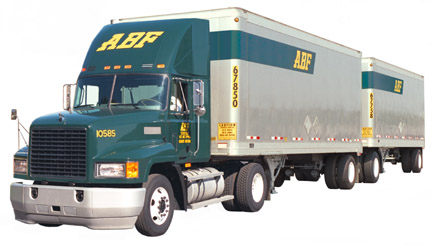
YRC Worldwide Inc., a giant in an industry that’s a harbinger of economic feast or famine, has been fighting a downturn for about two years.
Theoretically, the Overland Park, Kan.-based trucking company will be among the first to show signs of recovery. But CEO Bill Zollars said he doesn’t expect improvement anytime soon.
“It will be a hard, long road back to recovery,” Zollars said. “The earliest we could expect it to start would be the second half of next year.”
The company monitors its shipments daily, watching for the increase in shipment size and then numbers that typically mark the beginning of recovery. Those figures, which usually show an uptick about six months before the rest of the economy, haven’t appeared yet, he said.
That means YRC will “continue to be kind of relentless on costs” to ride out the downturn, he said.
During the past year, the company laid off more than 5,000 employees, including 50 in St. Louis and 150 in Edwardsville, Ill.. The company also closed service centers and recorded hundreds of millions of dollars in impairment charges. In early December, YRC reached a tentative agreement with union employees to cut their wages 10 percent and suspend cost-of-living adjustments in exchange for a 15 percent ownership stake. The company also took steps to adjust the cost structure for nonunion workers.
YRC serves nearly 800,000 customers in most industry segments, Zollars said, but the customer base generally can be divided into half retail and half manufacturing — sectors that have shown general deterioration for about 15 months.
In addition, YRC has been trying to integrate its Yellow Transportation and Roadway divisions. Once done, the process will mean better service and efficiency, Zollars said. It’s been accelerated because of good results but has contributed to the layoffs and closures.
Zollars advocates fast action on some type of economic stimulus when Barack Obama is sworn in as a first crucial step to jump-start the economy.
“It’s really a function of getting consumer sentiment to stabilize and then turn around,” he said. “Right now, people have really stopped spending money.”
When YRC emerges on the other side of the recession, it and others that survive will be much more efficient, effective and stronger, Zollars said.
AdviceIn the midst of ever-important cost-cutting, companies should avoid the tendency to eliminate strategic expenses, such as investments in technology and training, said Bill Zollars, CEO of YRC Worldwide Inc.
“That’s a mistake a lot of companies make,” he said. “You have to resist the temptation to try and cut back on those, and look long-term.”
 In a year when nine publicly traded Arkansas companies lost more than 40 percent of their value, Arkansas Best Corp. had the best return for investors.
In a year when nine publicly traded Arkansas companies lost more than 40 percent of their value, Arkansas Best Corp. had the best return for investors.


